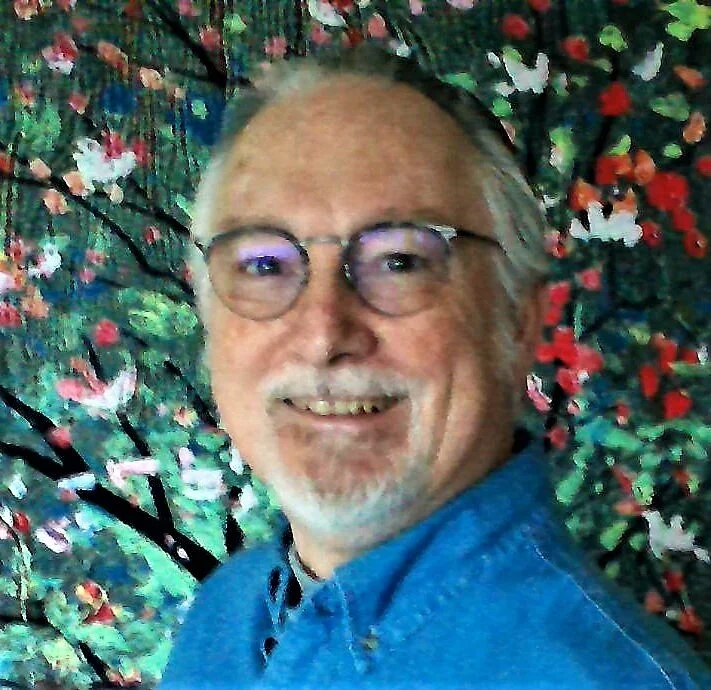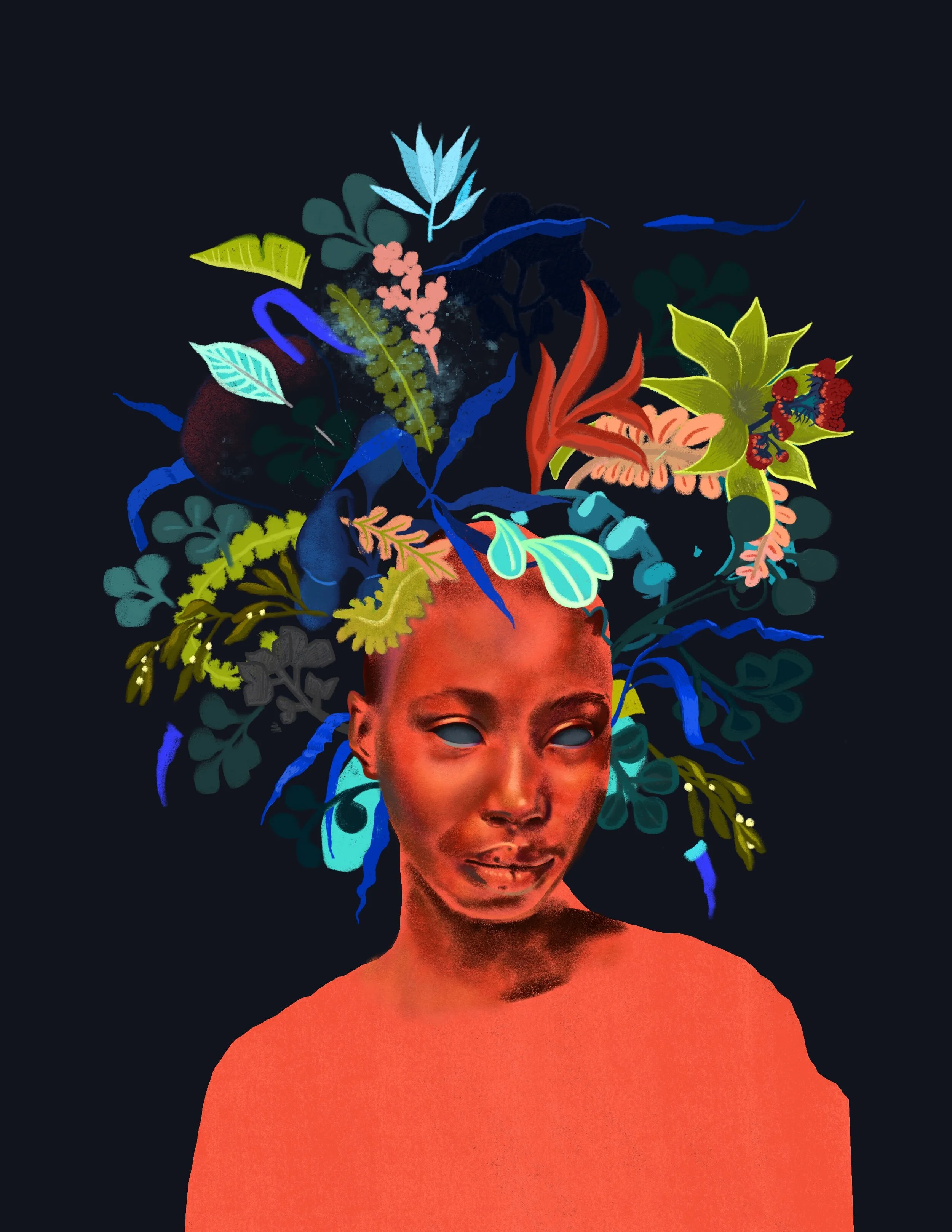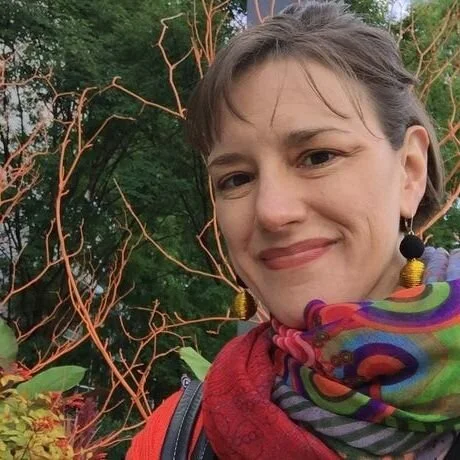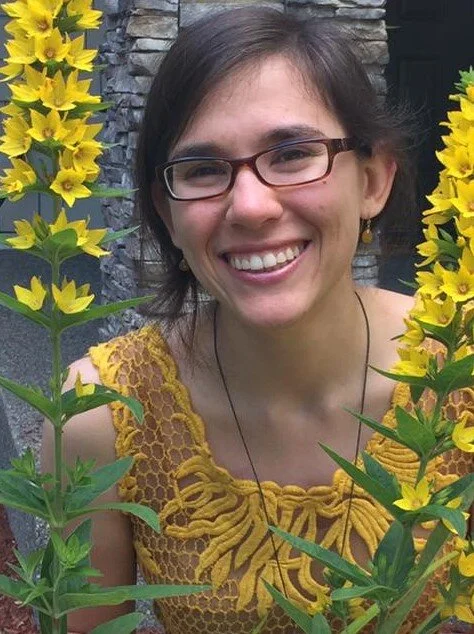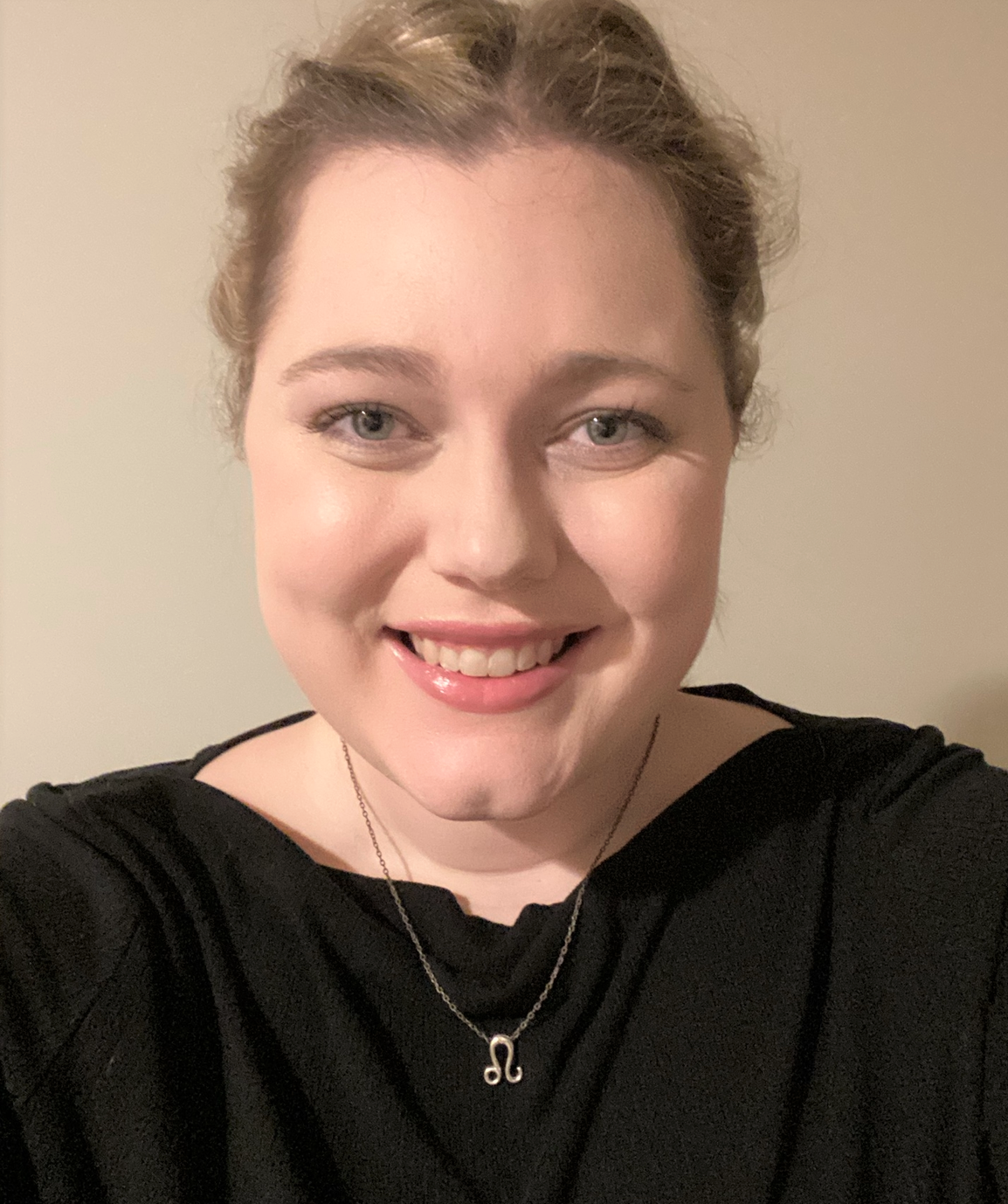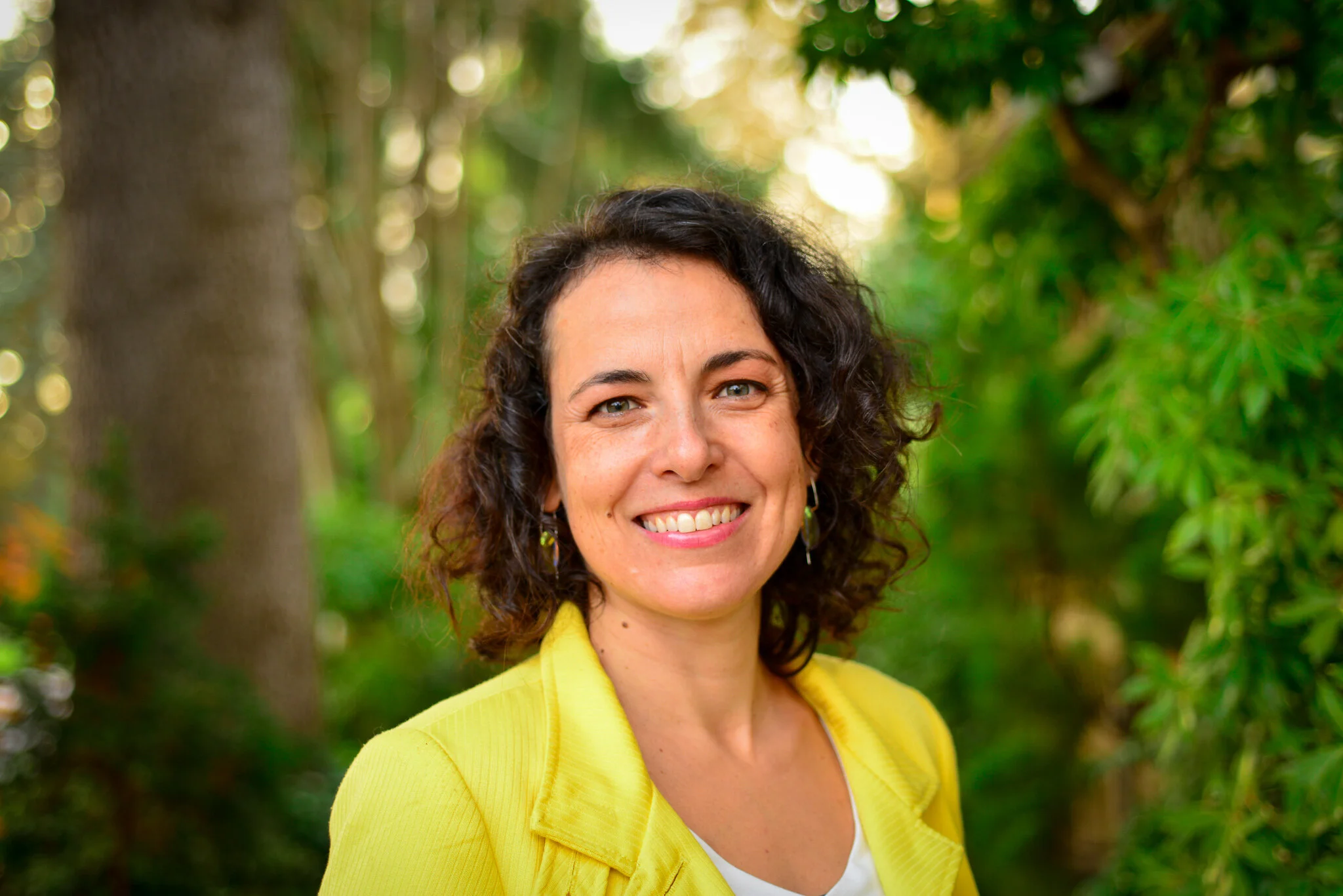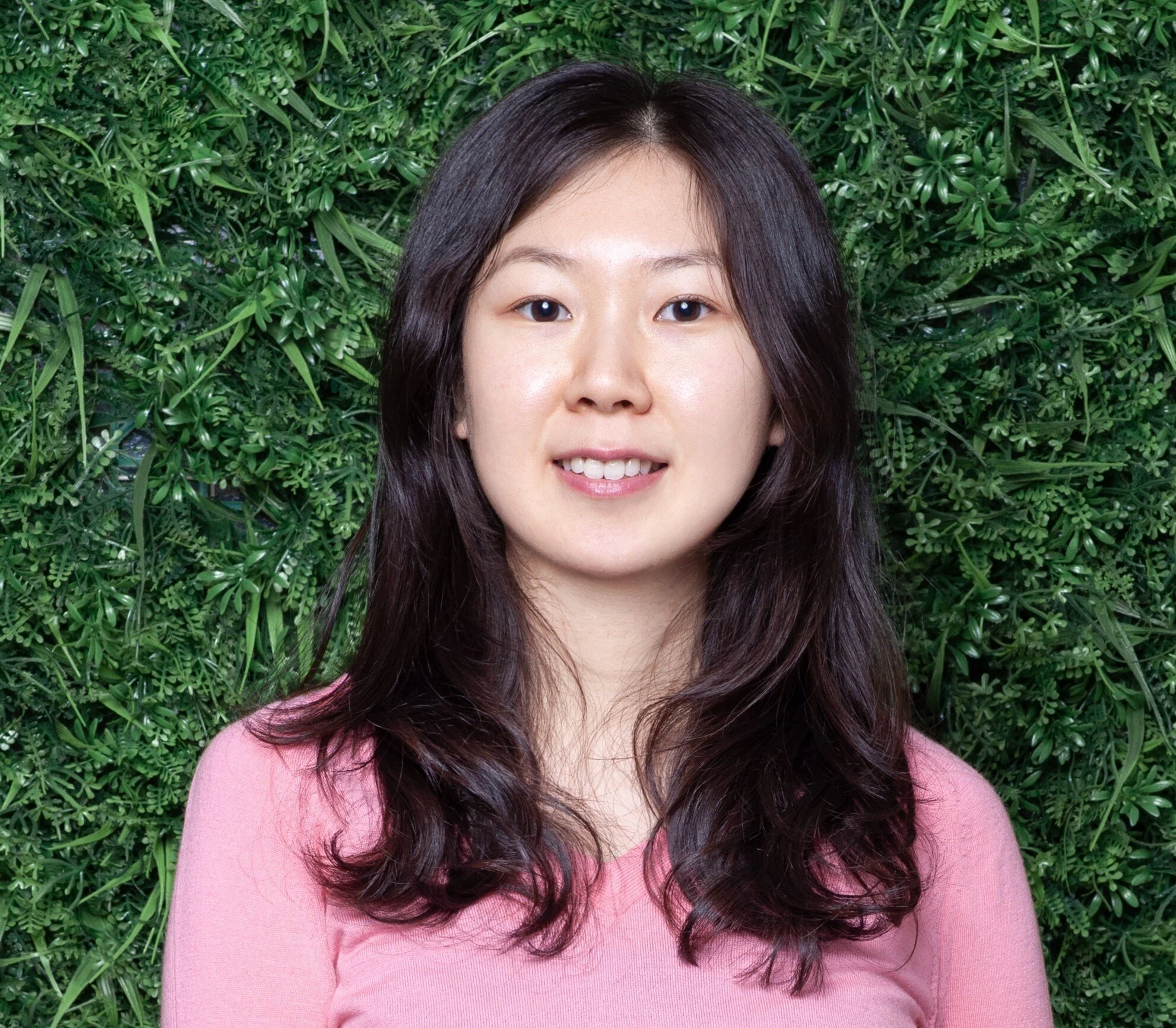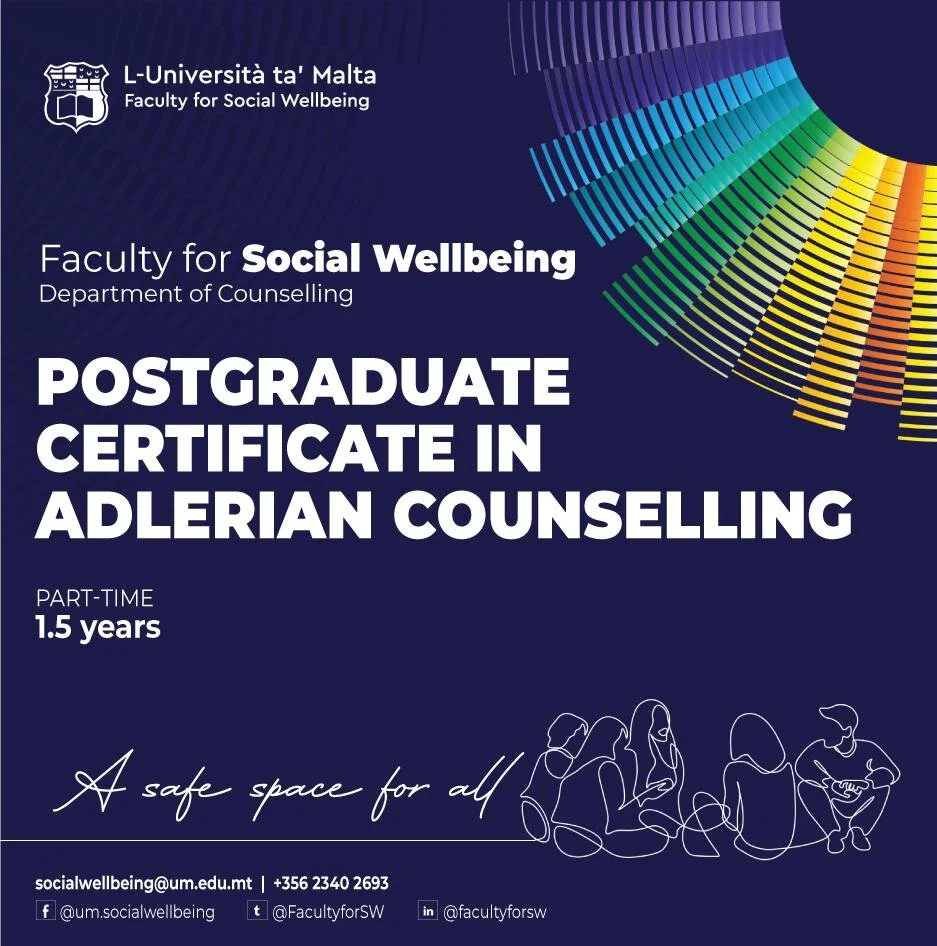
Welcome to the Connection
June 2021 Issue
Letter from the Co-editor
Dear NASAP-ians,
It was so lovely to get to see/meet so many of you at our hybrid conference in Milwaukee. I’d like to thank all of the people who volunteered their time to make sure that presentations went on, including two of our interns at the newsletter, Galen and Alyssa.
Today I am so tired from all the work I did at the conference and from traveling home. I’m glad to be back in Seattle, but already missing my friends and my mentor, some of whom I’d never met in the flesh until last weekend. While at the conference this year, I got a behind-the-scenes look at who makes up NASAP.
© Jess Minckley, 2018.
I kept thinking over and over about who contributes in what way. Who cooperates and who does not? Who criticizes from the sidelines or talks badly about their colleagues? Who can only participate by giving their own presentations? I was left wondering about the purposefulness of these behaviors. It strikes me that perhaps some of the obstacles to NASAP’s progress stem from interpersonal patterns. I hope NASAP can have a culture of cooperation, not cliques; and doing the work, not just talking about it.
In this issue, you will find not one but two Adlerian Spotlights, one of whom is a regular columnist, Xiaoxuan Qu, and the other is from Vancouver, BC, Ishtar Beck. These spotlights are often intended to illustrate that there are many people who contribute to our organization who may not be in the spotlight at a conference, or in the “inner circle”, but who are important and deserve to be appreciated. Adlerian art therapy is also part of the focus of this issue with contributions from two unsung heroes in our society, one of whom received a Lifetime Achievement Award as the result of our correspondence.
Now that the conference is over, we focus on the year ahead. What needs doing, what we can look at, what we can imagine together, who we want to be, and how much we can realistically contribute. I know that NASAP is often the fourth or fifth or sixth community people belong to, but I hope that when we commit to doing something, we actually do it or ask for help! And that the women in the organization needn’t remain to be indefatigable workhorses. This serves as a call to action to step up or step back as the case may be.
This is a very exciting turning point for NASAP and much is changing. To that end, there’s a new chance for you to reach out to NASAP to tell us your opinions. We care about what you think. We represent you. I would like to call each of our readers to reach out to NASAP through The Connection, especially if you have been hurt, to tell us your story and your dreams for a different future. Please contribute to the writing here, and nominate your friends for Spotlights.
It is my belief that courage is born only of necessity, and it is by sharing of ourselves that we might liberate one another.
- Jess Minckley
President’s Address
Next Memorial Day weekend we will gather in Alexandria, VA. Our conference theme will be:
“What the world needs now.”
Tim Hartshorne
President
As I write this, it is my first day home from Milwaukee, having taken the ferry back to Michigan. It is hard to express the emotions I experienced from actually seeing so many of my friends in person after such a long time, and also so many virtually on the screen, joining from their homes, and actively participating by presenting, asking questions, and even receiving awards. We were together.
Of course, there were glitches. We called upon the courage to be imperfect many times. But then in a session, I would see the face and hear the voice of a friend, and even though we were not physically in the same room, we were connected. And while participants on the ground were very good about wearing masks in the reception areas and meeting rooms, the masks were quickly removed for photographs. And, while in principle we understood physical distancing, there were handshakes and hugs, nevertheless.
I wrote previously about Adlerian optimism and courage, and it took both to plan and execute this hybrid conference. No one else was attempting this (and on several occasions during the meetings we understood why). But, it worked. Adlerians came together and reunited, learned, and communed – both in person and virtually. For me, a magic moment was during awards at the banquet. Some people received awards on the stage, and others magically appeared on the screen as they were spotlighted by Zoom. In so many ways it felt the same in both cases.
Next Memorial Day weekend we will gather in Alexandria, Virginia at the Westin Alexandria Old Town. Our conference theme will be “What the world needs now.” We have been going through a pandemic, racial reckoning, major division in our country, and the effects of global warming. What does the world need? How can we as Adlerians be part of developing provisions and solutions? We all need optimism and courage as we face the needs of the future. I hope to see you then.
Regular Columns
Dancing on the Waves: Sailing Through Doctoral Studies
Xiaoxuan Qu, M.A.
Hello NASAP Readers,
I hope you are enjoying this Spring. This Spring semester, my doctoral program in counselor education addressed professional roles in one core area: leadership and advocacy. Counselors and counselor educators were defined as "leaders of clients, students, members, colleagues, associations, honor societies, and perhaps most importantly, leaders of service to others" (Change et al., 2012, p. 21). Until now, I’ve found myself wrestling with this idea. More precisely, I struggled to understand the nature of being a leader, and what leadership means.
Different leadership theories have different focuses. For example, behavioral theories explain that leaders are considerate, which includes awareness and sensitivity to the feelings and emotions of others (Schultz & Schultz, 2010). Empathetic leaders value relationships. They are caring towards, and attentive to others' thoughts and feelings about their work, goals, and tasks.
Alternatively, contingency theories of leadership incorporate conditions into leader effectiveness. One model (Fiedler, 1967) illustrates the correspondence between leadership style, and the amount of situation control a leader has. For one thing, leadership styles, whether task-oriented or relationship-oriented, are assumably fixed. For another, there are three degrees of situation control: low, moderate, and high. Fiedler’s model suggests changing leaders to match the situation or changing the arrangement to match the leader.
In addition to context and action, one model (West et al., 2003) includes vision as another dimension of leadership. Specifically, the authors see leadership as an action to move people to create or realize a vision. Rather than a solitary act, leadership is a part of an ongoing conversation that enables people to establish and move toward their goals.
Despite the fact that not a single Adlerian principle is explicitly articulated, I could not help but think that these theories are imbued with lessons from Individual Psychology, such as human coexistence, social interest, and cooperation. For example, Adler (1925) elaborated to us the eternal truth—the iron logic of human coexistence. If a person recognizes and accepts this eternal truth of being in the web of human coexistence, the vision or a conscious goal is to serve the general good, to reinforce human fellowship. As such, a person's feelings, thoughts, and actions will fall in line with achieving that vision by dealing with the social, work, and love life tasks.
Accordingly, a leader needs to be caring, considerate, and empathic toward individuals and situations to meet personal and contextual needs. There are struggles along the way to achieving such a socially cooperative goal. However, any unremitting obstacle indicates an acknowledgment of social feeling (Adler, 1925).
Did Adler specifically talk about leadership? Yes, but not prolifically. Adler's (1925) remarks, reflect the masculine pronoun, a German linguistic rule (which is a historical limitation in the use of rhetoric):
What are the personal requirements of such leadership? A strongly developed sense of solidarity is the first of all. An optimistic outlook and sufficient self-confidence are just as necessary. The leader must be endowed with the capacity for quick action—he must not be a dreamer or onlooker. He must have ease in his contact with people and must possess tact so as not to frustrate the assent of others. His preparation, his training must be above the average. He must, in a word, be a real human being who possesses courage and equipment. In him lives what other men dream about. (p. 94)
In this quote, Adler spoke about many leadership qualities: interdependence, cooperation, optimism, competency, cognitive complexity, consideration, empathy, authenticity, courage, and healthy risk-taking. All of these are found in the leadership literature. Consequential questions came up: if I considered myself a leader- to my clients or students- how would I develop my leadership identity in alignment with Adler's philosophy? Or, would it matter if I saw myself as a leader or not?
This process of learning and understanding is intriguing. Perhaps, I need to focus on making myself useful by engaging in counseling, supervision, teaching, research, and service. I am curious whether answers to these questions may come to me.
Who else has experienced a similar becoming?
Thanks for your time and effort in reading. Take care until we meet here again.
References
Adler, A. (2004). The collected clinical works of Alfred Adler: Volume 5: Journal articles: 1921-1926: Talent & occupation, crime & revolution, philosophy of living. (H. T. Stein, Ed.; G. L. Liebenau Trans.). Classical Adlerian Translation Project. (Original work published 1925)
Chang, C. Y., Barrio Minton, C. A., Dixon, A. L., Myers, J. E., & Sweeney, T. J. (2012). Professional counseling excellence through leadership and advocacy. Taylor & Francis Group, LLC.
Fiedler, F. E. (1967). A theory of leadership effectiveness. McGraw-Hill.
Schultz, D., & Schultz, S. E. (2010). Psychology and work today (10th ed.). Prentice-Hall.
West, J. D., Osborn, C. J., & Bubenzer, D. L. (2003). Dimensions of leadership in the counseling profession. In J. D. West, C. J. Osborn, & D. L. Bubenzer, Leaders and legacies: Contributions to the profession of counseling (pp. 3-21). Brunner/Routledge.
A Classic
By Rocky Garrison, Ph.D.
Reference: Dreikurs, R. (1965) The holistic approach: Two points of a line. In Proceedings of the Conference of Individual Psychology Association of Chicago, St. Joseph’s Hospital, November 13, 1965, pp. 19-24.
Author Information: Rudolf Dreikurs (1897 – 1972) worked in the Individual Psychology Child Guidance Clinics in Vienna in the 1920’s. He moved to Chicago in 1937 and in 1952 founded the Institute of Adlerian Psychology, which has evolved into Adler University.
This is a transcript of a talk given by Rudolf Dreikurs. It discusses a practical strategy for applying the Individual Psychology (IP) core construct of holism and integrating seemingly disparate facets of a client into an IP case formulation. He challenges the clinician to consider these facets as a line of movement, a pattern, two stones in a mosaic, to ask ourselves, "… what is the possible pattern of thought and beliefs that would conceivably connect these two divergent facts?" (p. 22). This focus on patterns or on movement contrasts with a focus on the accumulation and reporting of facts in a case formulation.
Initial tentative directions or patterns are confirmed or modified based on the client's response and additional data as it becomes available. Dreikurs recalls how Alfred Adler encouraged his students to "guess in the right direction" (p. 21), and when a hypothesis is disconfirmed, the clinician seeks a new pattern that incorporates this new data with all the other facts that have been collected. Dreikurs illustrates this process with two cases integrating two pieces of family constellation data in one case and current situation information with a family constellation in the other.
You can receive 0.4 hours of continuing education credit from NASAP
by going to https://nasapce.didacte.com and finding the course entitled "Dreikurs, 1965."
Adler in Depth & Breadth
by Erik Mansager
Here’s part of an email I received recently from a former counseling student now in private practice. I’ve added in some links [in square brackets] for easy reference to the training referred to.
I'm really loving working from a Polyvagal Theory lens [Polyvagal theory in practice - Counseling Today]. I also work with a protocol called Safe and Sound [The Safe and Sound Protocol (SSP) - The Safe and Sound Protocol UK], which works the middle ear through specially filtered music - the results are so interesting. Finally started training on eating disorders called Embodied Recovery [Home - Embodied Recovery in Los Gatos, CA] - it is a soma-psycho-social model that sees the behaviors and symptoms as the body actually speaking about how it makes sense of the world, how it feels safe and how it thrives and that the body itself is a resource in the recovery process. The model pulls in work from Polyvagal, Sensorimotor [Home page - Sensorimotor Psychotherapy Institute], and SE [Home - Somatic Experiencing - Continuing Education (traumahealing.org)] - really interesting way to approach addictions. I imagine it can be used broadly.
Wow! That is a dedicated practitioner of the healing arts! One of many I’m thrilled to know for the seriousness with which they take their practices.
I appreciate very much that colleagues practice new approaches and report about their application with great enthusiasm. After all, I’m an Adlerian enthusiast myself.
As an Adlerian, my quest is how to tailor appropriate interventions to heal the individual – in the midst of their symptomology. I seek to provide first relief and also release – release from whatever underlying habitual susceptibilities contributed to one’s vulnerability to trauma. Resolving one’s mistaken outlook allows us to understand our place in healing the world. This is the healing potential of Individual psychology.
What makes the individuals susceptible are the mistaken conclusions drawn from early childhood. These still inform their adult interactions and transactions. It is easy to “mistakenly conclude” in childhood whether or not the experiences were traumatic. The susceptibilities – mistaken approaches – are both states of mind and personality traits that prepare the individual to deal with a given circumstance, or its aftermath, in particular tried-and-true ways.
So, whenever my colleagues and I are case conceptualizing together, I ask, “From your treatment perspective, can you help me understand what purpose the client’s symptom serves?”
They frequently respond about the importance of personal safety and security from past distressing experiences or ongoing re-enactments of the event.
Such purpose, for Adlerians, is understandable in the short run – but it is a mistake in the long run.
My question tries to ferret out, how a given interaction (from benign occurrence up to a traumatic event) impacts individuals’ understanding of themselves. Each evidence-based approach mentioned above has an effective way of interacting with the vulnerable client to help negotiate the trauma (short-term benefit). But once the traumatic event is dealt with – and perhaps resolved: what then? What about the long run?
© Alyssa Rodriguez 2021.
© Alyssa Rodriguez 2021.
What do clients believe they must do as a result of the event (Hide? Abandon hope? Aggress another? Harm themselves?) or as a result of the healing (Self-protect? Live happily? Help others in similar circumstances? Return to “normal”?)? Because it is this self-perception – one’s lifestyle – that remains after the work of therapy.
How do they interact, post-traumatically? How free are they to be who they understand themselves to be; now? If we therapists aim to reinstate the homeostasis that predated the trauma – will it suffice? Dare we venture further into the controversial area of helping the vulnerable one understand how to change the underlying habitual susceptibilities they developed which intensify their vulnerability?
How our vagus nerve operates and directs information, how our middle ear structure functions regarding acoustic transfer after trauma, how our whole body – along with its sensory capacities – is involved in the delicate balance of recovery, and how to apply stress physiology, psychology, ethology, biology, neuroscience, indigenous healing practices, and medical biophysics in understanding the body – all these are worthy pursuits to resolve traumatic symptoms. And after the symptom resolution – there remains an individual.
The work of releasing the individual from underlying mistaken conclusions is essential to Adler’s healing process.
From the Social Justice Task Force
Microaggressions in a Contemporary Adlerian Society
by Corey Frantz
© Jess Minckley, 2017
Courage takes on my forms and is a central theme within our work. From an emotive and linguistic understanding, courage holds many meanings that shape our lives. At times, the feeling elicits doubt, shame, fear, pain, or even grief. When we hear the word courage, our immediate inclination is the association we make with a figure or circumstance that requires courage. Sophie Lazarsfeld credits this as beyond the surface level of adversity or an uncomfortable situation and rather associates it with the ability to accept and face imperfection. When we think about everyday acts of courage, we can reflect on instances that hold opportunities for meaning-making. We hold onto the hope that everything will turn out okay when in a situation that calls upon us to be curious and courageous.
One situation that calls for courage is when a microaggression occurs. Microaggressions are subtle forms of discrimination, racism, prejudice, or misogyny that are sometimes callous remarks (Psychology Today, n.d.). An example is when someone says, “Your English is really good, where are you from?” or “Only people who work hard can succeed in this world”. Often credited to the work of Chester Pierce and colleagues in the 1970s, research has since expounded upon this concept to include how deeply embedded it is within in social systems (Brown et al., 2019). Sue et al. (2007) explain that perpetrators are often unaware that they engage in these acts when interacting with people of color. The remark may or may not be intentional, but communicates hostility, offense, and slights an individual.
This correlates closely to the Adlerian principles of social interest and private intelligence. Adler (1968, p. 253) states that “According to private intelligence an individual may attempt through a personal, private view of the world to assert himself and enhance his own sense of superiority by injuring that of someone else. Private intelligence is at work whenever a person tries unfairly to turn to his own advantage the social contributions of another person. But here, we shall have to add a qualification: the injury inflicted is not deliberately intentional”. Adler’s description strongly resembles the definition of microaggressions.
With that being said, the question becomes “What we do when we encounter a microaggression from an Adlerian stance?” I refer to the idea of courage. It takes courage to tell someone that their action or remark is an act of microaggression. Using the uncomfortableness to advocate from one’s own needs, we can help encourage movement toward social interest about each other’s journeys. Adler (1956) reiterates this point by emphasizing “understanding is a common matter, not a private function. To understand is to understand as we expect that everybody should understand. It is to connect ourselves in a common meaning with other people, to be controlled by the common sense of all mankind”.
On the opposite end, if we are the one perpetuating the microaggression, we show courage by apologizing and inquire about ways to understand. Even when not directed toward us, we demonstrate courage through allyship by addressing the microaggression and the impact on others. We believe that is the nature that we can begin to see with the eyes of another, listen with another’s ears, and feel through their hearts.
Corey Frantz is a doctoral student at Adler University, Chicago, IL.
References
Adler, A. (1956). The Neurotic Disposition. In H. L. Ansbacher & R. R. Ansbacher (Eds.), The Individual Psychology of Alfred Adler (p. 253). Basic Books.
Brown, S. L., Johnson, Z., & Miller, S. E. (2019). Racial microaggressions and black social work students: A call to social work educators for proactive models informed by social justice. Social Work Education, 38(5), 618–630. https://doi-org.ezproxy.adler.edu/10.1080/02615479.2019.1594754
Psychology Today. (n.d.). Microaggression. https://www.psychologytoday.com/us/basics/microaggression
Sue, D. W., Capodilupo, C. M., Torino, G. C., Bucceri, J. M., Holder, A., Nadal, K. L., & Esquilin, M. (2007). Racial microaggressions in everyday life: Implications for clinical practice. American Psychologist, 62(4), 271–286.
Other Submissions
The Use of Art in Counseling Psychology
By Judy Sutherland, PhD, ATR-BC, LCPC
Dr. Judy Sutherland (Adler University, 2021).
“Judy Sutherland, Ph.D., ATR-BC, LCPC, is the creator of Adler University’s M.A. in Counseling: Art Therapy program and served as the program chair from 1993 to 2006. Dr. Sutherland received Adler’s Distinguished Service Professor Award, the Illinois Art Therapy Service Excellence Award, and the George B. Walter ’36 Service to Society Award from Lawrence University.
Dr. Sutherland has written a book, titled Insight into Adlerian Art Therapy: Through the Lens of Individual Psychology, in which she describes an interdisciplinary approach to art therapy that integrates her thoughts on philosophy, education, art, ethics, sociocultural issues, dreams, addiction, research, professional development, and supervision.
Dr. Sutherland is a graduate of Adler University. She is now retired, but continues her interest in making art.” (Adler University, 2021).
Some of the following thoughts are taken from my book: Insight into Adlerian Art Therapy (Sutherland, 2016).
Even though I am on the Board of Trustees at Adler University, where we are making a massive effort to address and help rectify racial inequalities, I have been wondering how I could personally contribute to this goal. Then [the Connection] wrote to me and asked if I would be willing to contribute my "thoughts on Adlerian art therapy or current events" to the NASAP Newsletter Online. So, that is what I am willing to do.
Art Therapy is a subject dear to my heart, having helped to develop the M.A., in Art Therapy program at Adler University based on what I learned from Sadie (Tee) Dreikurs, wife of Rudolf Dreikurs. Tee taught an art therapy class at Adler using the same art techniques she did with disadvantaged, and sometimes delinquent, children at Jane Addams Hull House in Chicago, as well as psychiatric patients at St. Joseph's Hospital. Her process led to my interest in combining my art major in college with an M.A. degree in Adlerian psychology and eventually becoming a registered art therapist (ATR).
Every single experience we have will, in some way, affect the way we see and understand the world around us. We create our own unique interpretation and response to life and this is what becomes visual in our drawings. The drawing then becomes a symbol of our felt experience and leads to a source of wisdom within. Whether it’s an Early Recollection, a dream, a response to an experience, or just a drawing, we can learn about ourselves… Either alone, with a therapist, or with each other in a group setting.
The common language of art that even children can understand can unite us with each other in support groups, classrooms, when responding to a crisis or pandemic, in the workplace, or in the community. The subject [of the artwork] evolves around what the client brings to therapy. It can also be done with parents, couples, families dealing with loss, people with addictive behavior, trauma, or life challenges. The key is working together, coming to an understanding, and resolving issues.
Reflection Art © Jess Minckley, 2021.
Using Art to Address Current Events
If I were teaching art therapy today, I know that I would need to address our current unrest dealing with long-term racial inequalities with the idea of bringing about social justice in a way that would help bring some peace to our nation once again. We need to find ways to exchange ideas and reduce inequities in housing, in work, in health care, and in education. Our ideas don't always work, but we need to rise above our frustration to slowly bring about changes that will make the world a better place for all of us.
I know I feel helpless when confronted with enduring racism. I'm not sure what will work to bring about social justice. Sometimes our best work is rejected. Many of us recognize our failure to address and rectify racial inequalities. But, we do have the ability to talk with one another in ways that can lead to new ideas. The evolution of consciousness is the key to our future and our health (Ornstein, 1991). Without this, our species will disappear.
Because there is no such thing as universal peace, we can at least work toward helping each other in the spirit of social interest and social equality to prevent more trouble before it arises (Dreikurs, 1967). There will always be crossroads and the challenge is to get beyond them.
Alfred Adler believed that social problems evolve out of the feeling of being treated unfairly as if somehow others are inferior and do not belong. This leads to discouragement and a lack of compassion for each other. To encourage cooperation with the social order of life, we all need to focus less on feelings of inferiority and more on social equality and continue to learn how to actively contribute and work toward the benefit of all. We create our own purpose for living based on how we understand our place in the world.
Kurt Adler reminds us that the single most important task in life is "to merge self interest with the interest of humankind." (1965). This is what we learn to do using the art experiences we have in the group art course work as first designed by Tee Dreikurs in "The Use of Art in Counseling. It is her theory, based on her understanding of Adlerian theory as she learned it from Rudolf Dreikurs, that I used in creating the M.A. in Counseling Psychology: Art Therapy program.
Journal Article
Signature Pedagogies for Art Therapy Education: A Delphi Study
Heather Leigh,
DAT, ATR-BC, LCPC (IL), LMHC (IN)
is Associate Professor of Art Therapy at Mount Mary University in Milwaukee, WI.
Abstract
Due to shifting standards in art therapy education and licensure an examination of how educators are preparing students for professional practice is warranted. This Delphi study used the framework of signature pedagogies to identify discipline-specific methods used by art therapy educators to teach students how to think, practice, and develop the ethics and values of the art therapy profession. A sample of 18 art therapy educators reached consensus on three common teaching methods and pedagogical worldview deemed essential to the education of art therapists: (a) experiential teaching and learning using art materials, (b) practicum/internship placements, and (c) art-based experiential learning. The results substantiate the claim that art therapy is a distinct profession with teaching methods differentiated from related disciplines.
Creative Contributions
Kirsten Laurel
Jaguarita, 2018
Terracotta
16" W x 8" H x 10" D inches
Kirsten Laurel is a ceramicist and watercolorist with a background in fine art and education. She is currently attending the Masters in Clinical Mental Health Counseling and Art Therapy program at Antioch University Seattle. She is passionate about exploring the universality of the human experience through her artwork. This particular piece speaks to her experience as a healer and the tricky balance in holding a deep caring for others while also caring for ourselves. As an emerging art therapist and long-time teacher, she is inspired by the sense of wonder, joy, and empowerment that art can provide for anyone who allows art to enter their lives. Kirsten enjoys blending creative therapeutic techniques with ecotherapy, using nature as a means to heal our souls, and holds a particular interest in the connection between emotion and the bodily experience.
Multicultural Guide
a play by Alivia Holkesvig
Vignette:
Taylor: In ADDRESSING Model (Hays, 2001) you are an Agent in 15 of 18 rank categories.
Alivia: That sounds good!
Taylor: Yes, it means you are very privileged (Alivia squirms uncomfortably). You are 29 years old, don’t have any mental or physical disabilities, upper-middle-class, cisgender… and you are White.
Alivia: White?
Taylor: Yes you have many advantages being White. You already know this. You realized this during the Black Lives Matter marches and protests last year.
Alivia: Yeah, I know… it just makes me feel…
Taylor: Guilty.
Alivia: Yeah, like, my heart just fell into my stomach and there are all of these… anxious butterflies.
Taylor: Good. Keep noticing what your body is feeling like. It’s going to be very important when you are on this journey of social justice discovery.
“This piece is a short, five-minute play that I created for the Multicultural Perspectives & Creative Arts Therapies course taken in my second quarter of graduate school. It is a humorous, creative re-creation of how I grappled with the influx of information about multicultural issues and social justice advocacy. It also references coming to terms with my intersecting layers of cultural identity, including agent and target identities, agency, power, privilege, and internalized/oppression.”
Alivia is a first-year graduate student studying Clinical Mental Health Counseling and Drama Therapy at Antioch University Seattle. Her current aspirations are to become the first drama therapist at Craig Hospital, a rehabilitation hospital specializing in spinal cord injury and traumatic brain injury in Denver, CO. In Alivia’s spare time, she enjoys hiking to, and swimming in, alpine lakes, playing card games with her wife, and watching her favorite show, This Is Us.
Adlerian Spotlight
This month we’re Spotlighting two wonderful Adlerians to make up for the May issue.
Ishtar Beck
MA, RCC, CCC, CPF
Location: Vancouver, BC, Canada
on the ancestral, occupied, unceded lands
of the Sḵwx̱wú7mesh, xʷməθkʷəy̓əm,
and Tsleil-Waututh peoples.
Master of Arts in Counselling Psychology,
Adler School of Professional Psychology
(now Adler University)
Registered Clinical Counsellor (RCC)
Canadian Certified Counsellor (CCC)
Certified Parenting Facilitator (CPF)
What do you do? Where do you work?
All my work is set up as a social enterprise. Under the umbrella of my own private practice, CounsellingHome, I engage in several branches of activities. First, and at the heart of my practice, I provide Adlerian counselling and psychotherapy to individuals and couples. Second, I lead parenting classes in my neighbourhood. The most recent parenting class was on Zoom, which was quite a learning curve for me. I provide parent guidance in private sessions as well. Third, I occasionally run Adlerian couples counselling workshops.
The fastest-growing aspect of my work has been my supervision practice, Ciel Community Counselling. In 2017, I mentored a student for the first time. The student provided low-cost counselling with my supervision. Since then, Ciel Community Counselling has grown significantly. The demand for a low-cost service is extremely high. The social justice aspect of running such a service, and reaching many clients who could not access full-fee service seems more crucial than ever these days. The reality is that in my part of the world, it seems mental health services are utilized mostly by those who can afford it, or by those who are mandated, e.g., in such a terrible crisis that they may be homeless and struggling with addiction. Ciel provides a low-cost community service that aims to address the enormous gaps in mental health care in my region.
Supervision now takes up about half of my practice. This fall, Ciel Community Counselling is set to number eight student counsellors and four supervisors—me and three collaborators.
Research interests/Life Task interests
Community counselling is my main interest these days. I would very much like to see clinics like Ciel sprout up all over the world.
If you could be any animal what would you be?
I would be an eagle, soaring high and eating lots of raw fish. I know, I know! Adler means eagle! I hope that’s not too corny.
If you could have lunch with one person from the past, who would it be? What would you eat?
I would love to have a sushi lunch with Raissa Epstein Adler. Her feminism and revolutionary spirit are my greatest inspirations.
Why did you join NASAP?
There is such a wonderful sense of community and solidarity among Adlerians. When I was a student volunteer at the 2011 conference (Victoria), I was deeply impressed by the older Adlerians’ friendliness and forthcoming, welcoming approach. The younger people were made to feel as important as the longtime professionals with long lists of publications to their names. There was a true shouldering up of the next generation. I felt like I could belong.
What are your hopes for the future of NASAP?
I would like to see many more folks from younger generations joining NASAP. I would like very much to see NASAP involved in social justice projects in such a way that the younger generations are engaged. I would like there to be scholarships made available for BIPOC counsellors and for the training of many more BIPOC counsellors.
How you've participated in NASAP so far?
I presented at the 2017 conference (Vancouver), at the 2018 conference (Toronto) and at the 2019 conference (Tucson). The topics ranged from parent education to couples counselling. I hope my next presentation will be about community counselling, perhaps in 2022.
Xiaoxuan Qu
MA, Doctoral Student at Syracuse University
Greetings! My name is Xiaoxuan Qu, written as 曲肖璇in my mother tongue, Chinese. It can be closely pronounced as “shaw-shwan tsu.” I am a doctoral student in Counseling and Counselor Education at Syracuse University. Due to the pandemic and other constraints, my doctoral studies took off virtually. Regardless of the number of miles in the distance, I believe that some folks undoubtedly could relate to the multi-folded experience of remote learning and working.
Something funny about me (if my humor is understandable)
Being a graduate student is 24/7 because learning is non-stop. An amusing anecdote shared between my family and friends is when they say, “Learning stops when you sleep. You only dream.” And I would reply, “I dream about learning.” This joke did not become funny until I lengthily explained the unity of personality to my people, who eventually forgave my peculiarity of being “a passionate Adlerian,” as they often called me with tender fondness.
It is an absolute honor to be in the Adlerian Spotlight. I am lit by Adler’s theory, many Adlerians’ guidance, as well as the opportunity from The Connection. I wish you all a jolly June!
What are my research interests?
Alfred Adler’s Individual Psychology is a pervasive element in my life, but I did not start shifting it to the research arena until recently. As far as I am concerned, the application of Individual Psychology is an utmost exciting topic. Before encountering Adler’s theory and philosophy, I was already oriented toward the psychology of use. Hence, when I learned about pedagogy and supervision in class, it was natural for me to consider how I would incorporate Individual Psychology into the learning content and apply it in the future. I am excited to see how this research interest develops, and I am also open to where the hidden ones pop up.
What motivated me to join NASAP?
Speaking of interests, I could still recall my eagerness to join NASAP about a year ago. NASAP is a vibrant Adlerian hub, so becoming a member required a minimum of thought. I run a regular column called Dancing on the Waves: Sailing through Doctoral Studies in The Connection. I wanted the column to be a platform to communicate my learning of Individual Psychology and counselor education with an appropriate audience. I also wanted it to be a roundabout where current graduate students, graduates, and interested individuals could meet once in a while with shared and distinct experiences. The column has been a connecting point. I look forward to seeing it grow in its creative way.
NASAP Announcements

Our Affiliate Representatives have news for you!

Our Section Representatives have news for you!

Our Committees have news for you!
More
RCTC is pleased to announce that this new postgraduate certificate program in Adlerian Counseling has now been fully adopted & approved through the University of Malta
Primary Instructors will be William Nicoll, Ph.D. & Dr. Monica Nicoll, Ph.D.
The certificate program will involve: two 6-day and one 3-day on-campus intensive modules plus 3 online modules for supervision & innovative practice applications... course modules delivered over 18 months.
Goal is to provide advanced training for counselors/therapists as well as to develop the next generation of trainers.
Open to practicing counselors from all countries and world regions
First cohort scheduled to begin February 2022
Watch for further information





